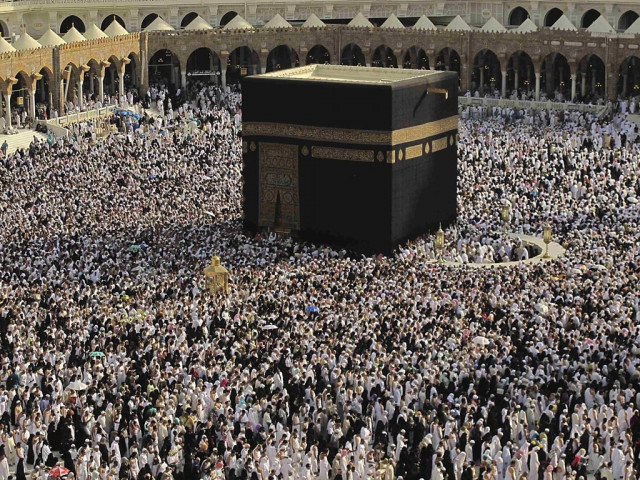Allocation of Hajj quota: Govt challenges LHC ruling
Additional attorney general claims Lahore High Court does not have jurisdiction over executive policy issues.

Allocation of Hajj quota: Govt challenges LHC ruling
The federal government has challenged the Lahore High Court’s (LHC) judgment against allocation of a quota of 15,000 pilgrims to the old Hajj Group Organisers (HGOs) in Hajj Policy 2014.
A two judge-bench, headed by Chief Justice Nasirul Mulk, will hear the federal government’s appeal against the LHC’s July 15 ruling tomorrow (Monday).
Talking to The Express Tribune, Additional Attorney General (AAG) Atiq Shah – who has drafted the government’s appeal – said the LHC did not have jurisdiction to issue judgment on executive policy issues.
He said the top court, while setting aside the LHC judgment in same matter, had earlier observed that it was not the function of the high court to exercise jurisdiction under Article 199 by interfering in the policymaking domain of the executive.
Similarly, the Hajj Organisers Association of Pakistan has also challenged the ruling. Kamran Murtaza will appear on behalf of the petitioner tomorrow (Monday).
He said if the high court order was not suspended at this stage then Hajj operations might be affected as the Saudi authorities had expressed satisfaction over the Hajj Policy 2014.
Justice Khalid Mehmood Khan of Lahore High Court had declared the Hajj Policy 2014 to grant quota of 15,000 pilgrims to private Hajj tour operators as unlawful.
“The respondent government should first instance utilise the quota …. and if the respondent is unable to perform its duty due to any reason, this quota of 15,000 pilgrims will be offered to all the registered tour operators of ministry of religious affairs,” the LHC had noted
The detailed judgment, issued on July 15, stated that there was a huge financial difference between the expenses of Hajj through private tour operators and the government of Pakistan, adding that the government was charging Rs272,000 per pilgrim whereas tour operators were charging even more than one million rupees per pilgrim.
“We are a Muslim state but our Muslim state is not providing any subsidy or financial assistance to Hajis whereas a secular country, India, is repeatedly providing different financial facilities to Muslims for performing Hajj, including subsidy in fare and other expenses,” the LHC had noted in its judgment.
The LHC had said it was the duty of the government, as well as the private operators, to assist Muslims in the performance of Hajj and not to burden them to an extent where it becomes impossible for a Muslim to perform this sacred duty.
Published in The Express Tribune, July 20th, 2014.






1724319076-0/Untitled-design-(5)1724319076-0-208x130.webp)












COMMENTS
Comments are moderated and generally will be posted if they are on-topic and not abusive.
For more information, please see our Comments FAQ